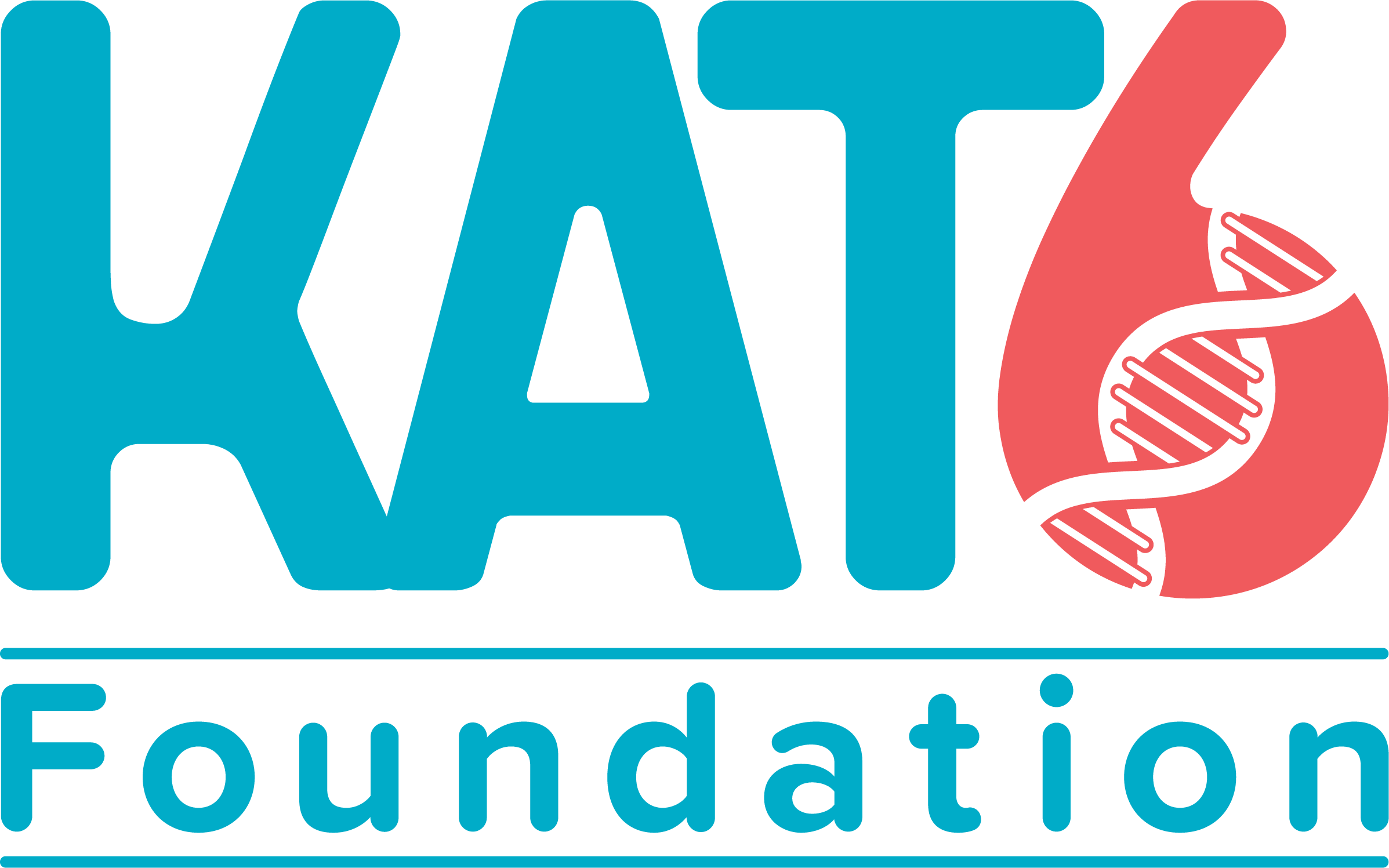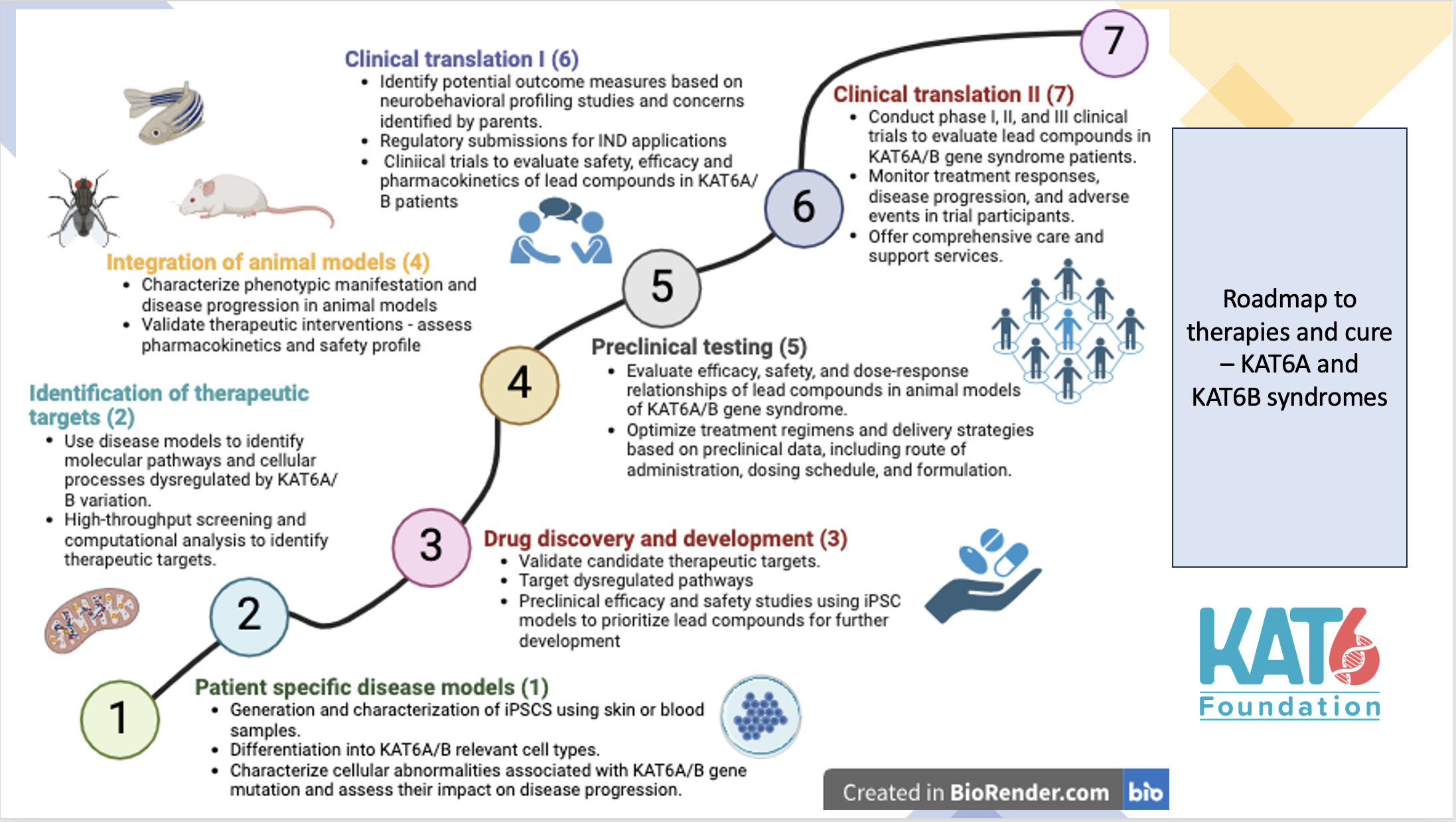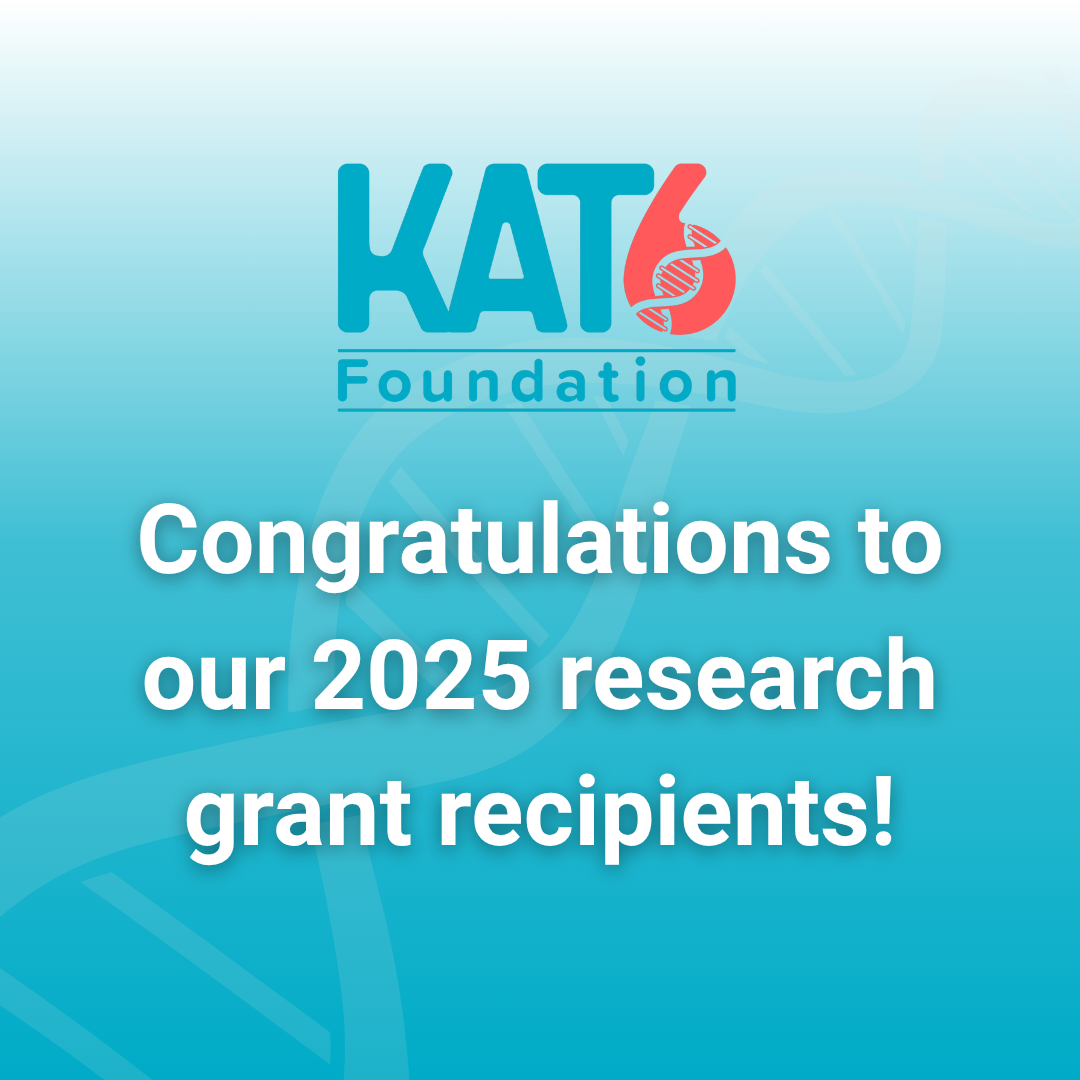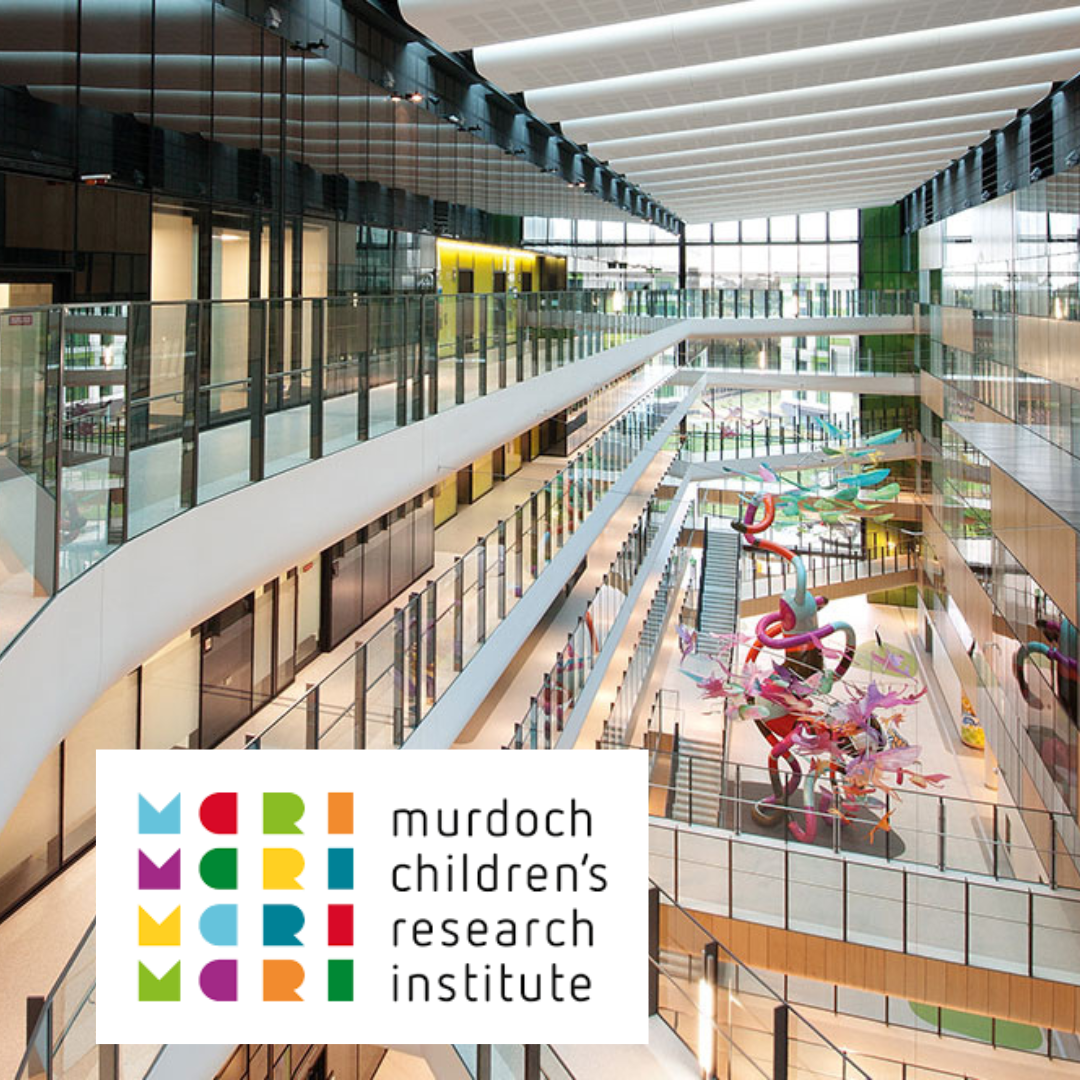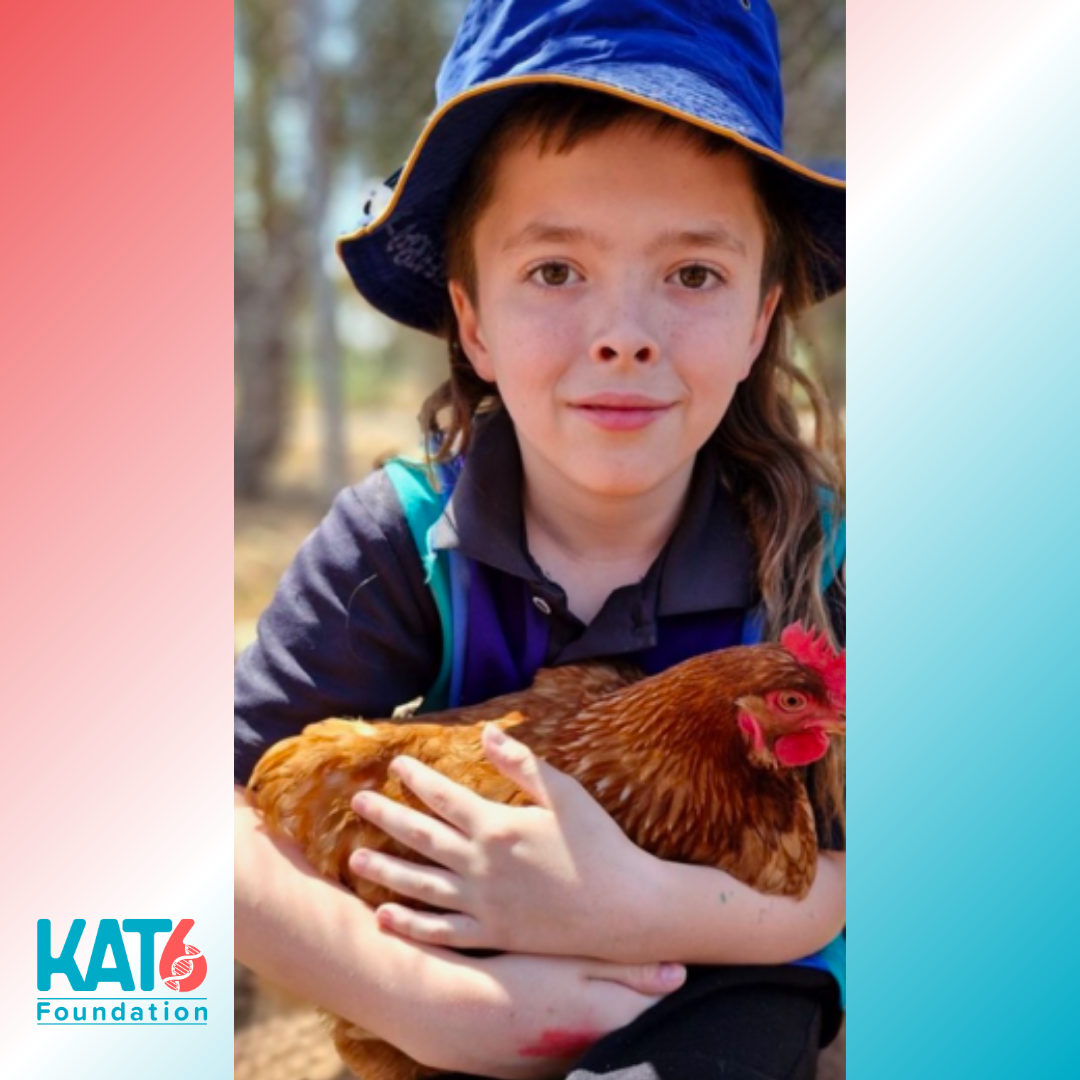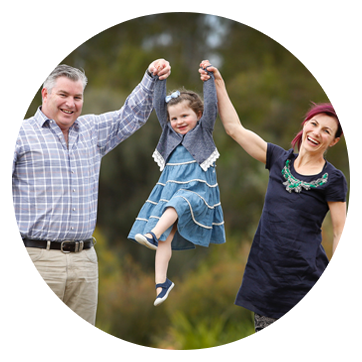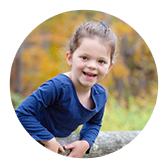Newly Funded Research (2025)
We are pleased to support seven new studies advancing our understanding of KAT6A and KAT6B syndromes. These projects address disease mechanisms, model development, potential therapies, and biomarkers—laying critical groundwork for clinical trials.
1. Development of Antisense Oligonucleotide Drugs for KAT6 Syndrome
Principal Investigator: Sookyung Kim, MD-PhD candidate
Institution: University of Massachusetts Chan Medical School
This study explores antisense oligonucleotides (ASOs)—a promising treatment modality that has already shown success in other rare diseases. Using patient-derived nerve cells, Sookyung aims to determine if ASOs can correct gene messaging errors caused by KAT6A or KAT6B mutations. Early success in target identification could lead to animal trials and, eventually, new treatment for KAT6 patients.
2. Patient-Specific Neurodevelopmental Models for KAT6B Mutations
Principal Investigator: Valerie Arboleda, MD, PhD
Institution: David Geffen School of Medicine, University of California, Los Angeles
This study leverages patient-derived induced pluripotent stem cell (iPSC) lines to investigate how specific KAT6B variants contribute to the phenotypic divergence between Genitopatellar Syndrome (GPS) and Say-Barber-Biesecker-Young-
3. Neurobehavioral Differences in Early- and Late-Truncating KAT6A Mouse Models
Principal Investigator: Valerie Arboleda, MD, PhD
Institution: David Geffen School of Medicine, University of California, Los Angeles
Dr. Arboleda’s team is creating new, KAT6A variant-specific mouse models to study how different types of KAT6A variants affect brain development and behavior. Based on data from their lab, they will test therapies to see if it can help improve symptoms in mice with severe KAT6A mutations. This study brings us closer to testing treatments that target the specific effects of different mutations in people.
4. Biomarker Discovery in KAT6A for Translation into Clinical Trials
Chief Investigator: Sarah Donoghue, MBBS, FRACP
Institution: Murdoch Children’s Research Institute (MCRI), University of Melbourne
This project seeks biomarkers in blood and brain tissues to further understand how cognitive function develops in KAT6A with the hope that we will be able to use this information to measure disease progression and treatment success. This work is building on multi-Omic work that we are doing in the lab to characterize KAT6A models of mice and KAT6A human cortical neuron experiments. We are hoping to understand the impact of KAT6A on brain function in mice and whether carnitine treatment improves this, paving the way for future human trials. Together, these studies will help get us closer to starting clinical trials in people with KAT6A syndrome.
5. A Multidisciplinary Clinical Program and Identification of a Metabolomic Profile in KAT6A/KAT6B Conditions to Inform Clinical Trial Readiness
Co-Investigators: Olaf Bodamer, MD, PhD and William Brucker, MD, PhD
Institution: Boston Children’s Hospital & Harvard Medical School
Dr. Bodamer is launching a new clinical program for patients with KAT6A and KAT6B syndromes at Boston Children’s Hospital. The team will collect detailed health data and samples from patients to better understand the natural course of these conditions. They’ll also search for unique biomarkers that could help doctors know when a treatment is working. This project combines high-quality patient care with research aimed at preparing for future clinical trials.
6. Epigenetic Landscapes and Gene Regulation in KAT6 Disorders
Co-Investigators: Maria A. Serrano, PhD and Gustavo Mostoslavsky, MD, PhD
Institution: Center for Regenerative Medicine & Boston University Chobanian & Avedisian School of Medicine
This research examines how KAT6 mutations affect gene regulation in brain, gut, and blood cells. The team will use an advanced method to see how these cells’ “epigenetic landscapes” (chemical markers that control gene activity) are different from healthy cells. It may also identify blood-based biomarkers for easier monitoring of disease progression and treatment.
7. CA3 Neuronal Development in KAT6A and KAT6B Patient-Derived iPSCs
Principal Investigators: Thomas Durcan, PhD, Faïza Benaliouad, PhD and Gilles Maussion, PhD
Institution: Neuro: Montreal Neurological Institute-Hospital & McGill University
Focusing on the CA3 hippocampal region linked to memory, this study uses patient-derived stem cells to uncover how brain cell development is altered in KAT6 syndromes. The goal is to find points for therapeutic intervention.
Ongoing Research
KAT6 Foundation has built lasting partnerships with leading research institutions across the United States and around the world. These collaborations go beyond funding—they have deepened our understanding of KAT6 syndromes, accelerated scientific progress, and strengthened our global community. We are proud to continue supporting the dedicated researchers who share our vision for better outcomes and brighter futures.
KAT6A and KAT6B Patient Registry
The KAT6A/KAT6B Patient Registry launched in 2019 through the National Organization of Rare Diseases (NORD). It is the first longitudinal study of KAT6 syndromes. Our registry collects valuable data about many aspects of KAT6 syndromes, enabling researchers to understand the full range of KAT6 characteristics and to identify areas for additional studies. Most importantly, the KAT6 Foundation owns the data we collect, which allows us more control around directing research and sharing information. The KAT6 Foundation also analyzes our patient registry data and shares it with our patient families, helping families better understand and support their loved ones.
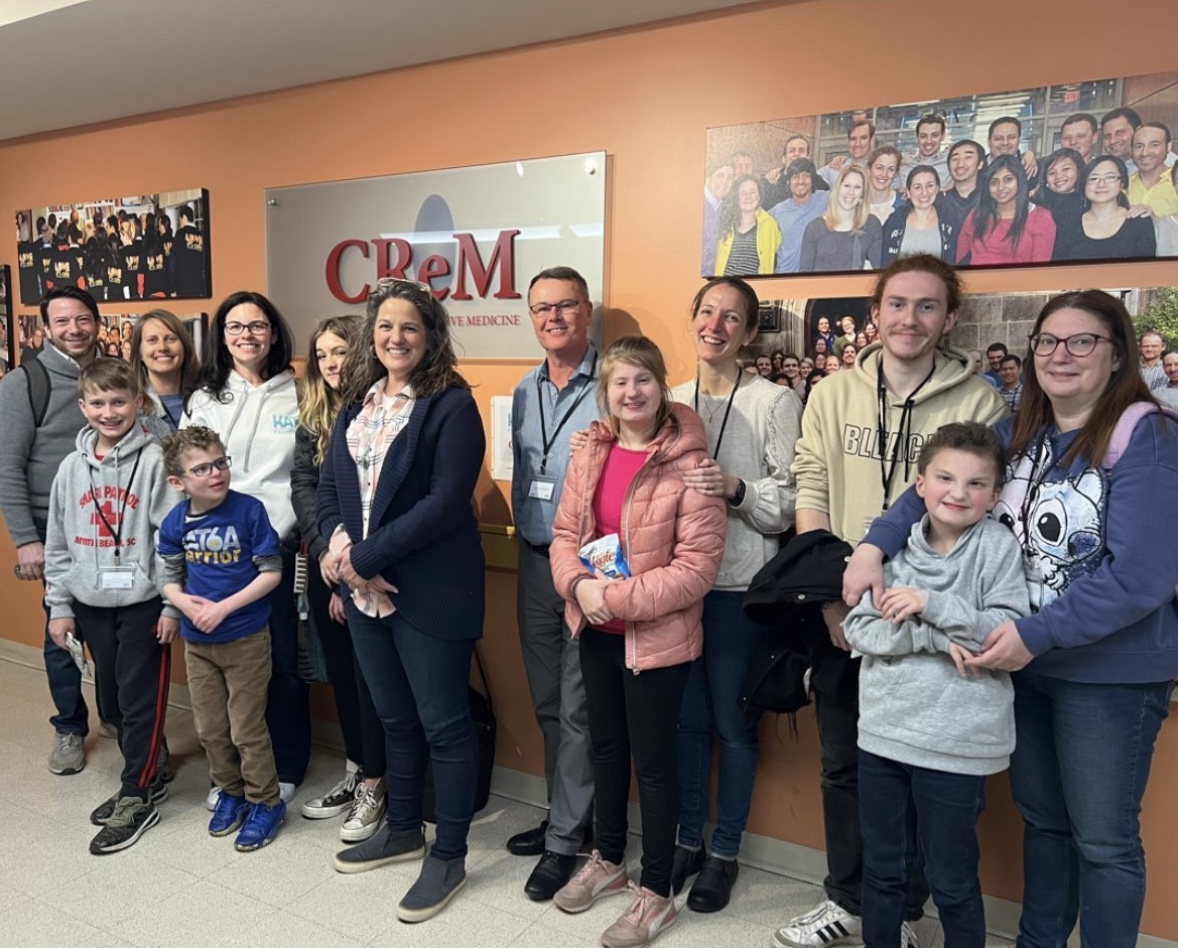
iPSC Bank
In 2022, the KAT6 Foundation and collaborators established the first patient-derived induced Pluripotent Stem Cells (iPSC) bank for KAT6A and KAT6B variants. Dr. Angie Serrano, stores and maintains biospecimens, such as, skin and blood samples of KAT6A and KAT6B patients at Boston University. These cells are shared with qualified researchers to develop disease models and screen potential therapies.
Read the KAT6 Biobank Status Report and tour Serrano Lab at the Center for Regenerative Medicine.
Cognitive and Neurobehavioral Characterization of KAT6 Syndromes
Principal Investigators: Jacqueline Harris, MD, MS and Rowena Ng, PhD
Institution: Kennedy Krieger Institute
This multi-phase study assesses neurocognitive function across developmental stages. Initial phases focused on verbal and adaptive skills, while current research addresses nonverbal cognitive profiles and social processing. Two peer-reviewed articles were released in 2024: Neuropsychological Profile Associated with KAT6A Syndrome: Emergent Genotype-Phenotype Trends and Expanding the Neuropsychological Phenotype of KAT6B Disorders: Overlapping Features with KAT6A Syndrome.
Arboleda Research Lab at UCLA
Dr. Valerie Arboleda’s lab leads foundational research into the genetics and phenotype of KAT6 syndromes. Using CRISPR technology and patient-derived stem cells, her team investigates how KAT6 gene variants affect gene regulation and cellular development.
In 2015, Dr. Arboleda published the first clinical description of KAT6A syndrome in the study De Novo Nonsense Mutations in KAT6A, a Lysine Acetyl-Transferase Gene, Cause a Syndrome Including Microcephaly and Global Developmental Delay. She followed this with the largest published cohort study of KAT6A to date: KAT6A Syndrome: Genotype–Phenotype Correlation in 76 Patients with Pathogenic KAT6A Variants (2019).
Expanding her research to KAT6B, Dr. Arboleda published Novel Variants in KAT6B Spectrum of Disorders Expand our Knowledge of Clinical Manifestations and Molecular Mechanisms in 2021. This study analyzed a new, previously unpublished cohort and provided critical insights into how KAT6B mutations influence gene expression and phenotype.
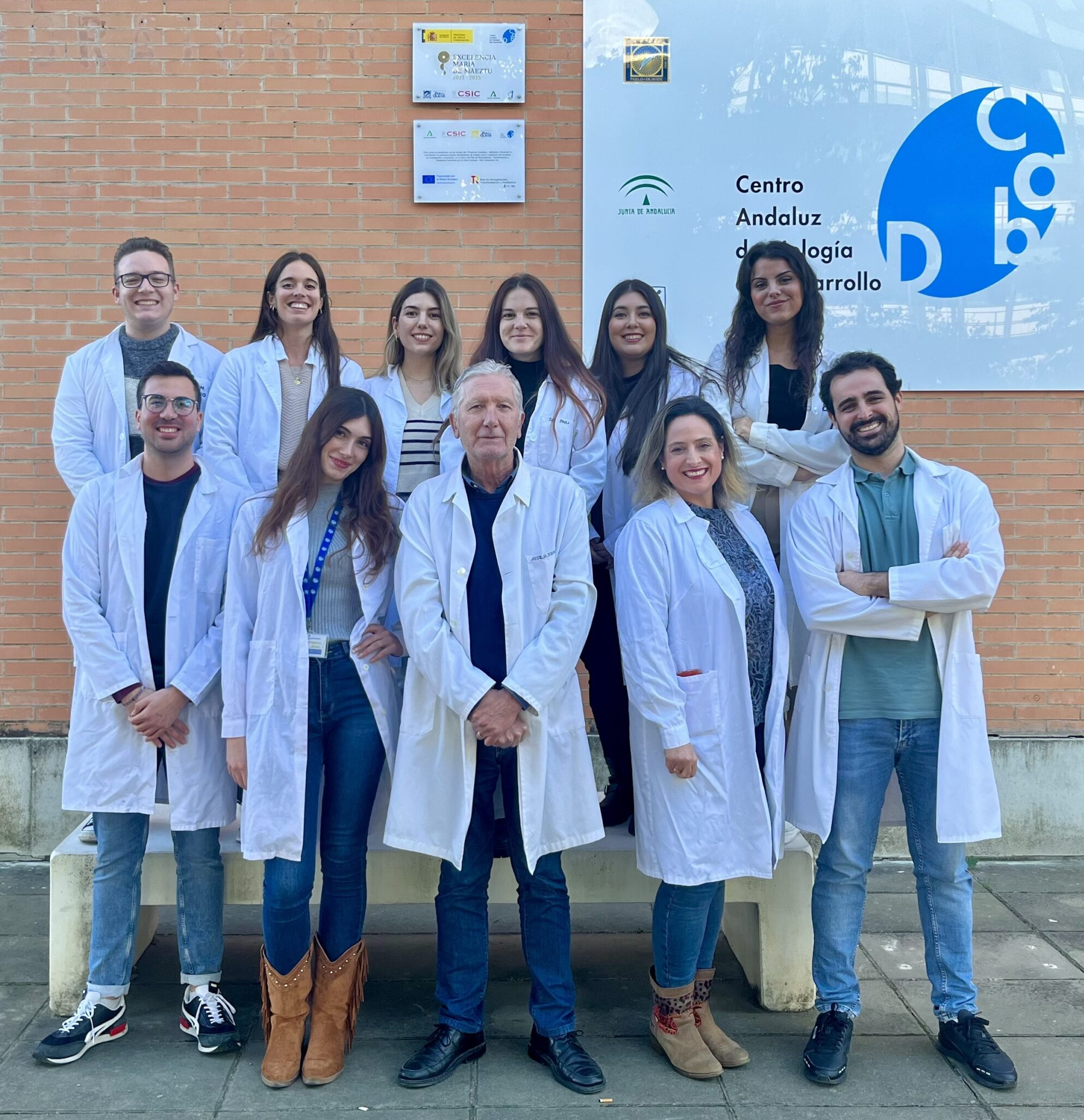
Vitamin B5 & L-Carnitine Supplementation Study
Together with the Asociación KAT6A in Spain, the KAT6 foundation supports research underway at Centro Andaluz de Biología del Desarrollo (CABD) in Sevilla, Spain. Dr. Jose Antonio Sánchez-Alcázar and his team are studying fibroblast cell growth and the mechanics and workings of the mitochondria, which is the engine of every cell. In this study, researchers used cellular models of the syndrome and found that supplementing with pantothenate (vitamin B5) and L-carnitine improved certain cellular dysfunctions associated with the condition. These findings suggest that such supplementation could be a promising therapeutic approach for individuals with KAT6A syndrome. Read the article.
Fly Model Research for KAT6 Disorders
Chief Investigator: Paul Marcogliese, PhD, Assistant Professor
Institution: Rady College of Medicine
In collaboration with the Rare Diseases Models and Mechanisms (RDMM) Network, this study is using CRISPR gene-editing technology to develop Drosophila melanogaster (fruit fly) models to investigate the neurological effects of KAT6A and KAT6B mutations. Led by Dr. David Marcogliese, the research includes drug screening and post-developmental analyses aimed at uncovering the roles of KAT6A and KAT6B in neuronal function. The findings are expected to highlight conserved molecular pathways that could serve as promising targets for future therapeutic development. Learn more about this project.
Early Brain Studies in KAT6A Syndrome
Principal Investigators: Yongqing Liu, PhD and Zhaozhu Qiu, PhD
Institution: Johns Hopkins School of Medicine
This research explores how KAT6A impacts brain function, with a focus on the hippocampal CA3 region—critical for memory. In 2024, Drs. Liu and Qiu discovered that KAT6A regulates the gene Rspo2, which plays a key role in activating Wnt signaling pathways essential for learning and memory. Restoring Rspo2 expression in mice with KAT6A mutations led to improved memory and brain function, pointing to a promising treatment approach for KAT6A syndrome. Their findings were published in the article KAT6A deficiency impairs cognitive functions through suppressing RSPO2/Wnt signaling in hippocampal CA3. Ongoing research is evaluating the effects of Wnt agonists in this mouse model and investigating how KAT6A mutations may influence vocalization and autism-related behaviors.
Past Research Projects
Mitochondrial and Glycolysis Analysis in KAT6A
Chief Investigator: Yehuda Assaraf, PhD, Professor
Institution: Technion Institute
Dr. Yehuda Assaraf of Technion Institute in Israel has been studying KAT6A gene mutations since 2017. His most recent research identified dysregulation in glycolysis and mitochondrial respiration in patient-derived fibroblasts, contributing to our understanding of cellular metabolism in KAT6A-related neurodevelopmental disorders. Read Assaraf’s 2024 report.
Crowdsourcing Project
An international crowdsourcing initiative gathered input from families, researchers, and clinicians to define and rank research priorities. Outcomes from this project continue to shape the foundation’s funding strategy.
